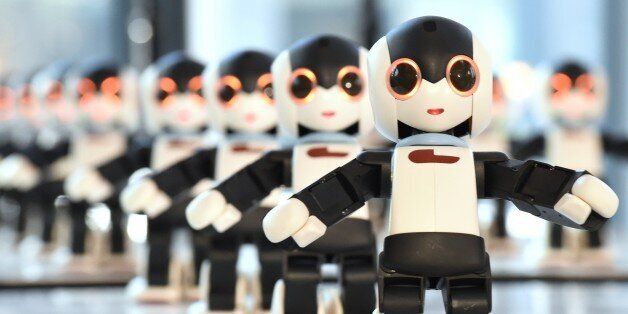NEW YORK — We are entering an age of accelerated development of artificial and robotic technology, three panelists told an audience of investors, engineers and journalists recently.
“A lot of the things that technology was traditionally lousy at are now really, really good, and getting better all the time,” said Andrew McAfee, the principal research scientist at the Massachusetts Institute of Technology. “This is unprecedented and unexpected.”
McAfee was speaking at an annual lecture on science and technology hosted by the Council on Foreign Relations; joining him on the panel were Rodney Brooks, an entrepreneur and emeritus professor of robotics at MIT, and Abhinav Gupta, of the Robotics Institute at Carnegie Mellon University. All three were optimistic about the development of robotics and artificial intelligence technology, but each acknowledged areas where there are still tremendous challenges to overcome.
“Just in the past few years,” McAfee said, excitably, “digital technologies in all their manifestations, including robots, have been breaking out of the box and starting to demonstrate capabilities that they never ever had before.”
But something as fundamental as taking keys out of a pocket, Brooks said, remains beyond the current capabilities of robots. Even determining that a picture of a child was a picture of a child is too hard. Great strides have been made in other areas, like creating machines that can win a chess game against even the most experienced grandmaster, but it will take years more research to mimic the dexterity of the human hand, the panelists said, or even the spacial awareness of a 1-year-old.
And yet, the most important issues to sort out, the panelists agreed, are not technological. They’re in the policy realm.
“None of It Is Rocket Science”
“Why is our infrastructure so lousy?” McAfee asked, exasperated. “Why are our immigration policies — as far as I can tell — designed by our enemies? Why are [our schools] turning out the kinds of workers we needed 50 years ago? If we can get these things right, that’d be the best thing we could do to improve the prospects of the American worker, and none of it is rocket science.”
Encouraging immigrants to create companies here is another issue. The government permits immigrants who invest $1 million in the economy to stay permanently, Gupta noted. “Why don’t we have that for people who have ideas to open a start-up?” he wondered.
Research investment is another area where American government policy needs a serious rethink.
“In the U.S., it’s going down,” said Gupta. “In China, it’s doubling. Europe is even better than the U.S.! If you talk to researchers, like me, Europe has much better research funding than America has.”
Two of the largest industries in the American economy — healthcare and education — are ripe for disruption, the panelists said.
“We are not seeing crazy price declines in these huge industries that we are seeing elsewhere,” McAfee argued. “What’s going to bring them there? Opening up these markets. Getting rid of the incumbent’s advantage. Education is a cartel.”
Geeks Will Astonish Us
In the end, despite the monumental challenges yet to be overcome, the panelists were optimistic about the accelerating abilities of technology and artificial intelligence.
“The exponential improvement in the elements of computing is not about to run out of gas,” McAfee said. “We’ve got generations more of it to go. Geeks out there are going to take that computational power and that ocean of data and do things that astonish us.”
But the panelists couldn’t muster the same sentiment when it comes to policy-making, economics and security.
“As different technologies have proliferated and really democratized access to innovation and to making things, the economy has moved in the other direction,” McAfee said. “It’s moved toward more concentration. The big guys are getting bigger. The workforce is becoming more polarized instead of less. I’m really worried about this polarization of opportunity and of mobility. I think it’s already a challenge and it’s going to get a lot bigger. And what we do about that is going to be the challenge that defines us for the next generation.”
Moreover, the global security landscape is becoming more threatening. The proliferation of accessible technology is as beneficial to Iran and the Taliban as it is for Silicon Valley start-ups. Equipment available at RadioShack is used in IEDs targeting American troops in Afghanistan, said Brooks.
“Cybersecurity is scary as hell,” McAfee noted.
“The threats of the future are going to be very different sorts of threats,” echoed Brooks. “And that worries me.”




